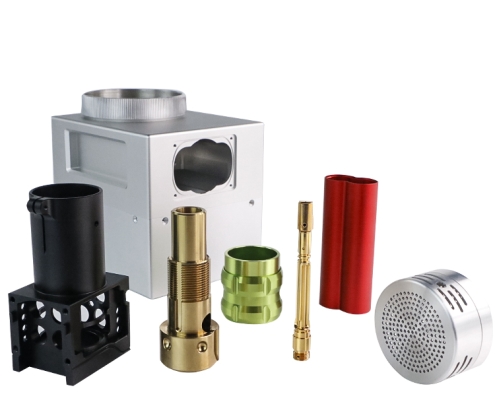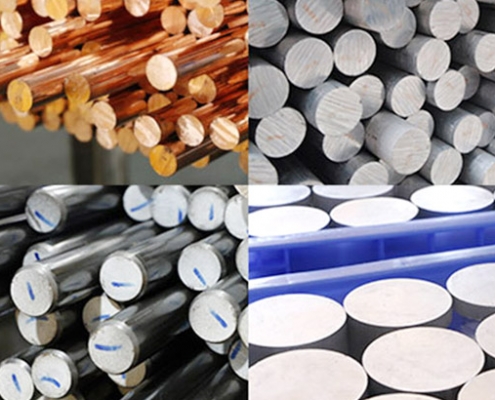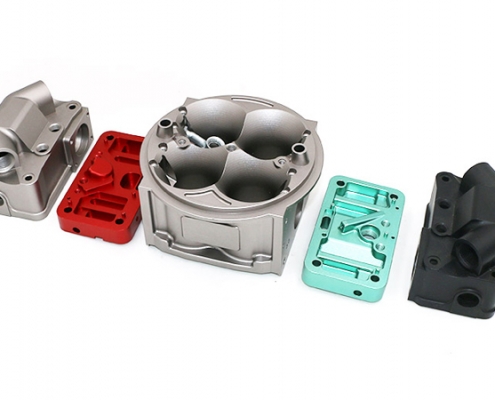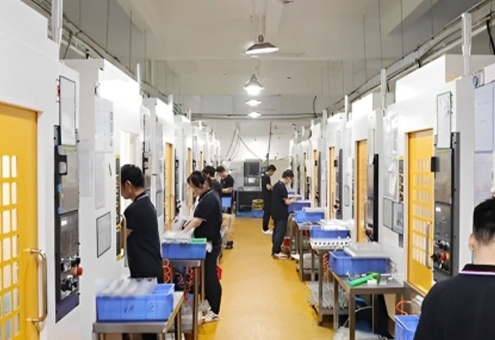CNC Machining Metal: A Machining Guide
Are your metal parts struggling to achieve the precision and complexity you need? Traditional methods struggle to keep up, leading to inconsistencies and expensive rework. CNC metal machining, however, can achieve unmatched precision and efficiency.
CNC metal machining is a highly effective solution for manufacturing precision metal cutting products and CNC metal parts. CNC machining manufacturers utilize advanced CNC machine tools to process steel and other CNC materials, ensuring exceptional tolerances and finishes to meet the needs of a variety of industries, from automotive to medical.
Let me walk you through how CNC metal machining can achieve unmatched precision and efficiency.
What is CNC Metal Machining?
CNC metal machining refers to a subtractive manufacturing process that uses computerized controls and machine tools to remove material from a metal workpiece, forming a custom-designed part. It leverages a what is cnc system, where pre-programmed computer software dictates the movement of factory tools and machinery. This advanced technology enables the precise shaping of raw cnc metals into complex components.
Essentially, it’s how you shape metal with unparalleled accuracy, turning raw blocks or sheets of material into finished cnc metal parts. The versatility of cnc metal applications spans countless industries, from aerospace to consumer electronics, producing everything from intricate prototypes to high-volume production runs.

Why Choose CNC Machining for Metal Parts?
CNC machining is a top choice for making metal parts because it offers several big advantages over traditional methods. First, it’s incredibly precise. CNC machines can achieve tolerances as tight as 0.005mm, which means every part is made with exact accuracy.
CNC machining is highly efficient. Once the machine is programmed, it runs automatically with minimal human input, reducing errors and cutting down on labor costs. This leads to faster production and consistent quality, whether you’re making one prototype or thousands of parts. Finally, CNC machining handles complex shapes and designs with ease that are difficult or too expensive to make by hand.
What Types of Metals Can Be CNC Machined?
One of the biggest strengths of CNC machining is its ability to work with a wide variety of metals. From everyday industrial materials to specialized high-performance alloys, CNC machines can precisely shape metals into highly accurate and reliable parts.
1. Compatible with a Wide Range of Metals
CNC machining works well with many metal types, including aluminum, steel, brass, copper, and titanium. This makes it a versatile solution across industries like medical, aerospace, automotive, and electronics.
2. Choose the Right Metal for the Job
Each metal has unique features, such as strength, conductivity, or corrosion resistance. Choosing the right material depends on how and where the part will be used, ensuring optimal performance and durability.

3. Supports Advanced Alloys for Harsh Environments
CNC machines can also process special alloys used in extreme conditions like high temperatures, pressure, or chemical exposure. These are commonly required in aerospace, energy, and marine industries.
4. Different Metals Require Different Machining Setups
Every metal reacts differently to cutting. CNC operators must adjust tools, speeds, feeds, and cooling methods depending on the material. This helps achieve the best accuracy, finish, and tool life.
Common Metals Used in CNC Machining
| Metal Type | Key Characteristics | Typical Applications |
|---|---|---|
| Aluminum | Lightweight, corrosion-resistant, easy to machine, excellent strength-to-weight ratio | Aerospace parts, automotive components, electronics housings, consumer goods, prototypes |
| Carbon Steel | Strong, cost-effective, good weldability, wear-resistant | Structural parts, tooling, brackets, construction components |
| Stainless Steel | Corrosion-resistant, strong, heat-resistant, clean appearance | Medical instruments, food equipment, fasteners, precision parts |
| Alloy Steel | Enhanced hardness, strength, and fatigue resistance | Gears, shafts, molds, heavy-duty machinery parts |
| Brass | Easy to machine, corrosion-resistant, low friction, attractive appearance | Electrical connectors, fittings, decorative parts, musical instruments |
| Copper | Excellent electrical and thermal conductivity, ductile, corrosion-resistant | Electrical contacts, heat sinks, busbars, connectors |
| Titanium | High strength, lightweight, corrosion-resistant, biocompatible | Medical implants, aerospace parts, marine components, sports gear |
| Nickel Alloys | Heat-resistant, corrosion-resistant, durable in extreme conditions | Jet engines, chemical processing equipment, turbines |
| Magnesium Alloys | Ultra-lightweight, good strength, easy to machine | Aerospace components, electronics housings, sporting goods |
| Zinc Alloys | Low cost, good castability, corrosion resistance | Small parts, decorative fittings, automotive components |
What Industries Benefit Most from CNC Metal Machining?
Automotive: Used to produce engine parts, transmissions, and structural components. CNC machining ensures high strength and accuracy, which are essential for vehicle safety and performance.

Medical: Creates surgical tools, implants, and device components. High precision and safe materials are critical to meet medical standards.
Industrial Equipment: Supports the production of gears, shafts, housings, and tooling. These strong and reliable parts are key for heavy-duty machines and automation systems.
Optical Technology: Used to make lens mounts, housings, and other precision parts for cameras, telescopes, and laser equipment. Tight tolerances and smooth finishes are essential.
Electronics: Helps manufacture phone frames, heat sinks, connectors, and casings. CNC machining provides accurate parts that fit perfectly and perform reliably.
These are just a few examples. Virtually any industry requiring durable, precise, and complex metal components benefits significantly from the capabilities offered by CNC machining services.
Choosing the Right CNC Metal Machining Manufacturer
Selecting a reliable CNC machining partner is crucial to ensuring quality, precision, and timely delivery of your metal parts. VMT brings over 15 years of specialized experience in CNC metal machining, handling everything from complex prototypes to large-scale production with ±0.005mm precision. Backed by advanced 4- and 5-axis CNC machines, turning-milling centers, and over 100 sets of equipment in a 5000 m² facility, VMT delivers consistent, high-performance parts across industries like medical, automotive, and electronics.
More than just a manufacturer, VMT is a trusted engineering partner. Our expert team, including 6 engineers with over 20 years of experience, offers free design optimization to ensure parts are easy to machine, cost-effective, and meet exact performance needs.

In Conclusion
CNC machining metal offers unparalleled precision and versatility for your metal parts machining needs. Partner with expert CNC Machining Manufacturers like VMT to achieve superior quality, rapid turnaround, and innovative solutions for complex designs.
Frequently Asked Questions CNC Machining Metal
Can a CNC Machine Cut Metal?
Yes, CNC machines can cut a wide range of metals with high precision. Using specialized tools and settings, they can handle materials like aluminum, stainless steel, titanium, brass, and more, making them ideal for metal part fabrication in industries such as medical, aerospace, and automotive.
Why is CNC Machining Preferred for Metal Fabrication?
CNC machining offers unmatched precision, repeatability, and flexibility. It produces complex metal parts with tight tolerances, fast turnaround, and minimal human error. It’s ideal for both prototyping and mass production, especially in industries that demand high accuracy like medical and aerospace.
Is Metal CNC Machining Expensive?
Metal CNC machining can be more expensive than some other processes due to machine costs, tooling, and time. However, it offers excellent accuracy, low defect rates, and reduces the need for secondary processing, making it cost-effective in high-precision or critical-use applications.
What Metals Can be Effectively Machined with CNC?
CNC machines can effectively process metals like aluminum, stainless steel, titanium, copper, brass, and mild steel. Each metal may require different cutting speeds, tools, and cooling methods, but CNC technology is versatile enough to handle most metals used in industrial manufacturing.



